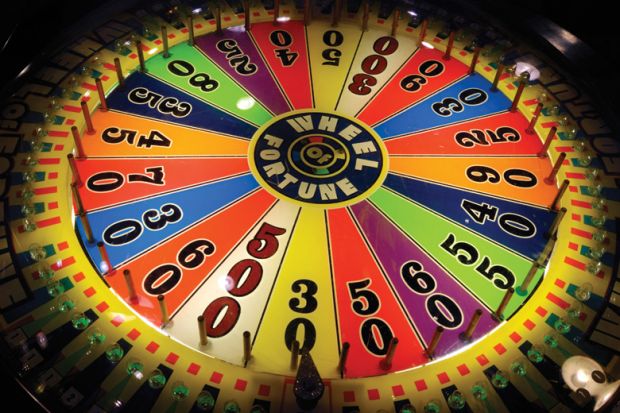Peer pressure and departmental culture, not a divide between quantitative and qualitative disciplines, may explain the variations between marks awarded to students in different subjects.
That is according to a study that found that the leniency of grades awarded by the same academics varied according to which field they were working in.
The analysis of the results achieved by more than 1,200 students in an Israeli university’s Faculty of Social Sciences, published in Studies in Higher Education, found significant divergence in the grades awarded in different departments. Final grades in psychology were nearly 12 points out of 100 higher, on average, than scores in statistics.
Michael Beenstock and Dan Feldman of the Hebrew University of Jerusalem found that the variation could not be explained by differences in the prior attainment of a course’s undergraduate cohort, with many weaker school students among the high achievers in the faculty.
Even when student ability was controlled for, large differences in grading remained, with undergraduates in geography getting marks nearly seven and a half points higher than similar learners in economics.
Professor Beenstock and Mr Feldman also attempted to control for variation in teaching quality across departments, and concluded that it would be “unreasonable” to attribute the differences to this, so they conducted an experiment focusing on the 49 academics who had taught in more than one department.
They found the marks that these lecturers awarded varied significantly according to which course they were teaching on, with a rate of convergence towards the departmental grading “norms” of 69 per cent.
This means that, for example, an academic whose main department was economics but who taught a geography course would mark students in the second department five points more generously, on average, than similar students in their home department.
Professor Beenstock, an emeritus professor of economics, told Times Higher Education that the study revealed “a whole area of unfairness”.
Lecturers in geography, communications and business studies were found to be most generous, with staff in economics, statistics, accountancy and law among the harshest markers.
Professor Beenstock said that the inclusion of law in the “harsh” category and the findings relating to academics working in more than one department meant that it was unlikely that the results could be explained by the idea that academics in qualitative fields, unable to mark according to the “right” or “wrong” answers found in quantitative fields, were more prone to giving students the benefit of the doubt.
“This result strongly suggests that instructors are affected by departmental grade norms,” the paper says. “Indeed, it strengthens the suspicion that grade differentials are not induced by differential instructor quality. Rather, they are induced by academic policy to grade more strictly or leniently.”
Register to continue
Why register?
- Registration is free and only takes a moment
- Once registered, you can read 3 articles a month
- Sign up for our newsletter
Subscribe
Or subscribe for unlimited access to:
- Unlimited access to news, views, insights & reviews
- Digital editions
- Digital access to THE’s university and college rankings analysis
Already registered or a current subscriber? Login




